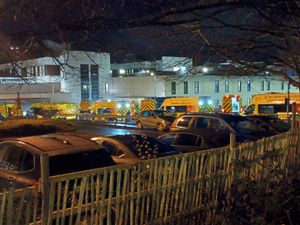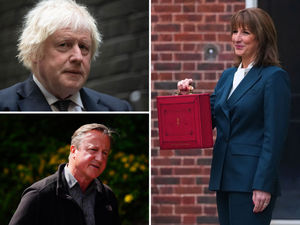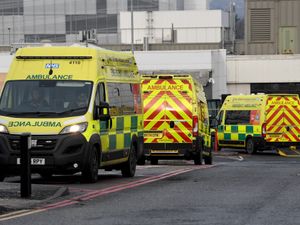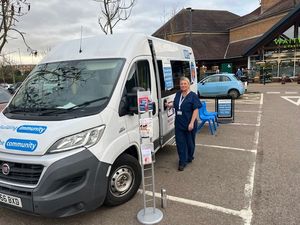Covid cases stable, but 'bigger challenges to come'
There will be "bigger challenges to come" in the fight against coronavirus, despite the number of cases appearing to level out across the West Midlands, health bosses have said.
In the last seven-day period across the region there has been 2,686 new cases compared to 2,960 in the previous seven-day period, Dr Lola Abudu, Midlands Regional Deputy Director for Public Health England, told the West Midlands Combined Authority briefing today.
Clive Wright, Covid-19 regional convenor for the West Midlands, said that levels of infection per 100,000 of the population for Birmingham on Tuesday was 146.3, and 139.2 as of October 1, Dudley was 45.2 and 52.5, Sandwell was 113.3 and 107.5, Walsall was 78.7 and 72.7 and Wolverhampton was 76.3 and 74.8.
He added: "Overall, this shows a reduction in last week's figures which is encouraging but we mustn't be complacent.
"We have the fourth highest number of cases in England and the rates of new diagnosis remain above the national average.
"Up and down the country, we are seeing a high prevalence of the disease, the North East and West in particular, are experiencing exponential growth, which has led to increased localised lockdown measures.
"We know that if we carry on as normal in the West Midlands we'll be heading in exactly the same direction.
"There are encouraging signs but it's too early to say for certain that our interventions are working. This takes time to prove.
"There may be, and will be, bigger challenges to come, but we must continue to do our bit as it will make all the difference in the long run."
On exiting the current local restrictions, Mr Wright said: "The technical point of exiting is a judgement call made on two things, the epidemiology, the numbers we've been talking about, and roughly speaking we're looking for a point of 100 at 100,000 of population to de-escalate, but it's not an absolute figure, a lot depends on context."
Birmingham City Council leader Ian Ward said that there are no further interventions proposed for the West Midlands at this stage.
Ian Brookfield, Wolverhampton Council leader, added: "The figures seem, on the strength of it, to have stabilised and that's good, we're really hoping that's because of the way we've identified the household mixing.
"We're nowhere like the North East and North West.
"For the West Midlands, certainly for Wolverhampton, it would be a catastrophe for us to go down there, yes we may go down there in a week, two weeks, but it has to be evidence-based."
And Simon Evans, director of strategic planning and performance at Royal Wolverhampton Trust, said two additional wards have been built at the hospital to keep coronavirus patients separate in preparation for the winter.
He said: "We've actually built during the last couple of months two additional wards.
"What this means, is it won't necessarily enable us to have more beds, what it allows us to do is change our physical spaces so that we can better accommodate and create different areas across the hospital to enable areas where we've got Covid-positive patients and then clean Covid-free areas, with better spacing around all areas across the hospital."




